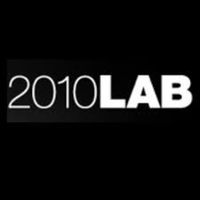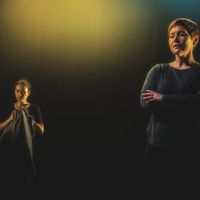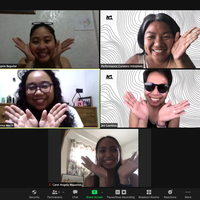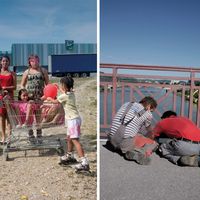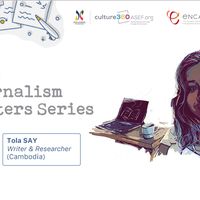Creative Encounters | The Ripple Effect | France, India, UK, Indonesia
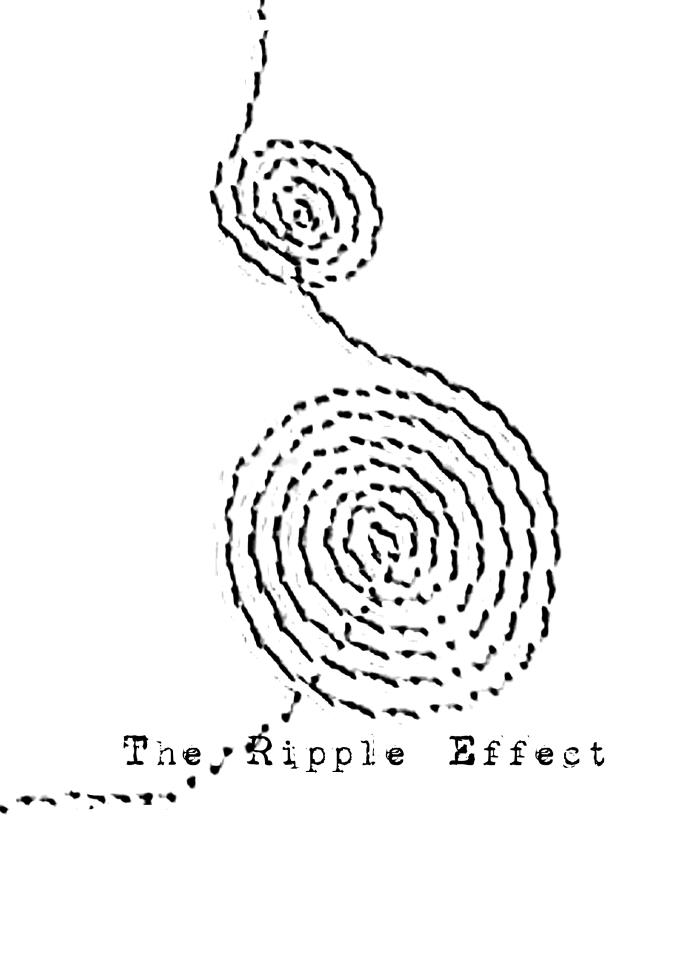
The Ripple Effect, one of the selected projects from the first edition of the Creative Encounters - Cultural Partnerships between Asia and Europe, will present its final performance in Maluku (Indonesia), on 11-23 September 2012.
This multi-disciplinary, high-quality performance, developed through a one-year programme of creative collaborations in France, India, Indonesia and the UK, includes practical training and community engagement using a wide variety of art-forms, from traditional to experimental, with the aim to create new techniques in living art pedagogy.
culture360.org has asked one of the organisers, Matthieu Bonicel from the Association Frères Poussière, to tell us more about this project.
The Ripple Effect brings together partners in a range of disciplines from four countries, and a wider group of partners with an even more diverse set of experiences. All of the partners have a common practice which is to make art installations and performances, exhibitions and events with non- professional artists, and by that we mean everyone from the boy in the Government Children’s Home to the NGO worker, from the marginalised immigrant mother to the highly skilled professional artist.
The Creative Encounters funding has enabled us to present four residencies in four countries, with the international artist team working with grass-roots participants, artists/NGO workers/ educators who want to develop a participatory practice creating four performances between June and September 2012.
Within the Ripple Effect artist team, we are sharing tools and approaches to working with people, reflecting together on what is the value and purpose of the work and what are our methodologies- both common and new to one another, and what works and what doesn’t in the Asian and the European context.
This sharing happens like ripples in a pool- the stone is dropped when the project artist arrives and starts planning the creative work, the first ripple is the “Passers”, the people on the ground who are ready to use these tools in creative work with local people. Together this wider group ripples their experiences out through trainees, students and to the community groups at the margins. The circle of planning, activity, reflection and planning makes sure that the edges are folded back into the centre.
So just like ripples, when the waves eventually bounce off the sides they start to travel back again to the centre, so what happens in the activities informs the team as to what to do next.
The artistic tools we are working with are rooted in radically different art forms such as digital music, physical theatre, dance, architecture, design, carnival, puppetry, so we, as a team, are crossing lines all the time.
“In Ripple Effect we are seeking to develop artistic forms that no longer belong to one culture or another but are a mixture of all artistic cultures represented, to break own boundaries and find a new way to work together", says Sangeeta Isvaran.
We all work in contexts at home, that are full of divisions, between people – young and old, different cultures, ethnic backgrounds, different classes and life experiences. We are exploring these divisions, or these lines of separation in the work. We can see that the creative curiosity, open-mindedness, and open heart that this work requires, are a way to bridge differences, to overcome fears and to build a positive shared history between different people.
Digital Ripples is a key aspect of this project – using social media tools and platforms to communicate our work, our activities and actually carry out the work.
Have a look at our Facebook Page – Ripple Effect, our Tumblr site 630ripples.tumblr.com, our blog, http://www.ripple-effect.co and our group on the culture360.org community and join in the conversation.
So who are we?
Frères Poussière from France is a cultural association based in Aubervilliers, a suburb of Paris that has seen much migration and change over the last 50 years. We have a number of creative projects currently live that engage with the hard to reach communities across the City, and encourage and support them to mix together.
http://www.freres-poussiere.com
B arts has been working for 25 years in this field, from a beginning as a street theatre company to now running cultural and creative projects in the UK’s North West Midlands, that encompass arts and digital work with the old, outdoor participatory cinema and a programme of site specific theatre work.
http://www.b-arts.org.uk
Aseema Trust, based in Chennai, is experienced in a wide range of South Asian performing art forms with Sangeeta Isvaran bringing in her work on Southeast Asian, West African and Latin American forms as well. Deconstructing traditions of dance, music, theatre, and myth, as well as the strong popular culture in India, Aseema works with the potency and immediacy of the cyclic nature of communication between the performer and spectator, sometimes the spectator becoming the performer and vice-versa.
http://www.aseematrust.org
Aseema has identified an organisation; Youth for Peace, in Ambon, Maluku to host the project in Indonesia, and while this NGO has no experience of using the arts in its work the staff and participants are eager to gain experience of this approach in telling the stories of the young people, some ex-child soldiers, with whom they work.
The Creative Encounters programme supports collaborative bi-regional projects initiated by artists, cultural managers, arts organisations, and art networks. Through this initiative, ASEF has successfully fostered Asia-Europe partnerships and created opportunities for networking, cultural exchange, and co-operation between Asia and Europe.

